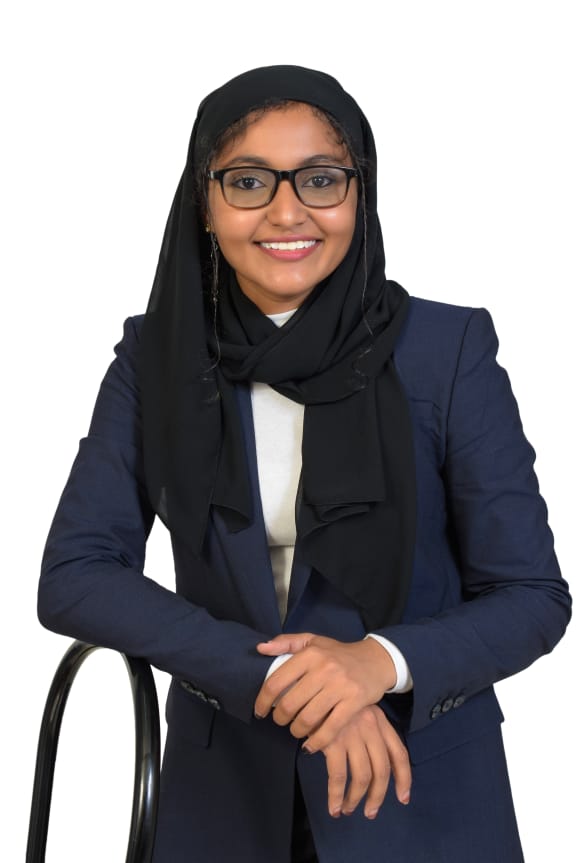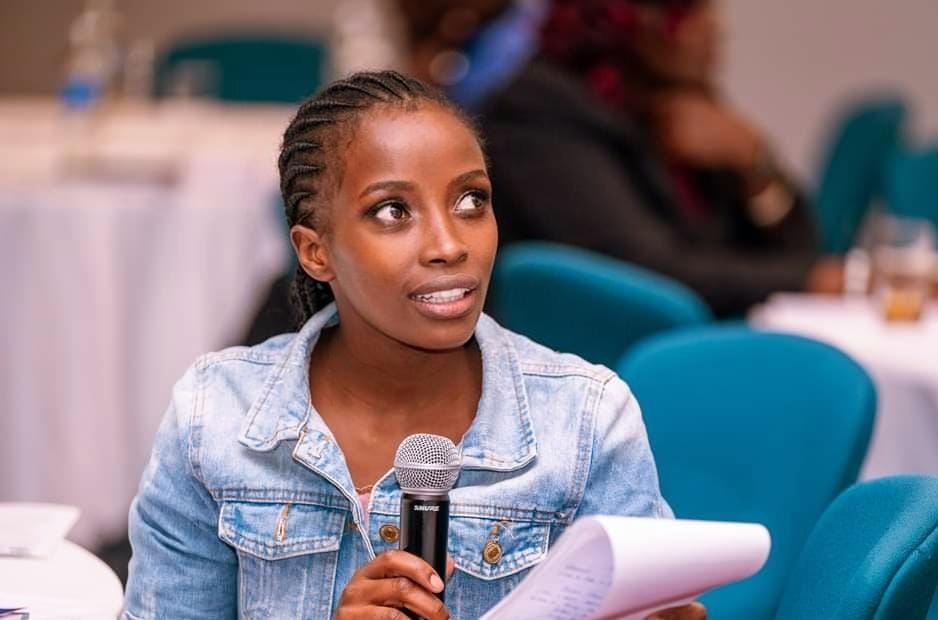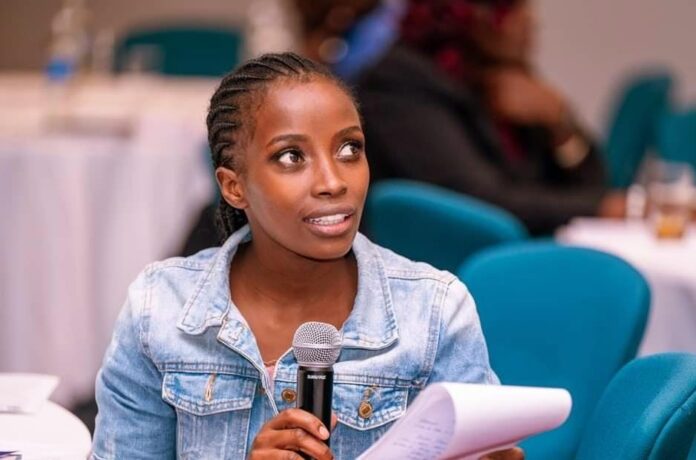|
Getting your Trinity Audio player ready...
|
By Scovian Lillian
Nairobi, Kenya: One in five girls have abandoned their use of their social media pages due to online violence, according to a 2020 survey conducted by Badili Africa.
It also found that 99 percent of university students were unaware of their digital rights as provided for in the Constitution of Kenya (2010). Also, many of them were not keen to read the terms and conditions provided when subscribing to the different apps on digital platforms.
Digital rights are human rights in the internet era and include rights to online privacy and freedom of expression, according to the United Nations Declaration of human rights.
The survey which sought to explore young women’s presence and engagement on digital platforms, found that 58 percent of young women and girls are harassed or abused online, and as a result, a fifth stopped using platforms like Facebook, WhatsApp, Twitter, and Snapchat, where attacks are rife.
Online harassment includes trolling, cyberstalking, doxing, online impersonation, sexual harassment, and revenge porn among others.
“Majority of the people who have been pushed away from online spaces because of harassment are young women aged between 18 and 25. They deactivate their social media accounts, or delete them completely,” said Bina Maseno, the Executive Director of Badili Africa.
The findings are not far from Salim Razina Msalam’s worst experience in a campus WhatsApp forum. Msalam, a Mass Communication student at the University of Nairobi encountered online violence in the form of hateful comments questioning her morals in 2021 while vying for a leadership post.

“Some guy even told me that I was sleeping around to get the post, but he did not have any evidence of the same. It was not true; it was pure hate,” she said.
Msalam recounts how hard it was to stay sane on campus. The more she tried to counter the online bullying and save her reputation, the more things spiraled out of control with endless insults. To minimize harm, she stayed mum.
“Most of the people who attacked me in WhatsApp groups were male,” she adds.
Another student who has faced online violence is final-year Broadcast Journalism student Priscilla Kaigai. Kaigai, a student at the Technical University of Mombasa, vividly recalls how she was body shamed by a male friend in 2019 when she posted her picture on her WhatsApp status.

In 2020, he told her she looked malnourished and should take advantage of the lockdown period to eat well. Later in the same year when she conceived and posted a photo of her baby bump on WhatsApp, the same man commented, “You are too tiny, how will you push the baby?”
“I felt bad about myself. I felt unsafe and anxious about my body, so I isolated myself from social media platforms to avoid further harm,” saya Kaigai. She later blocked the culprit.
Most of the online harassment perpetrators are men, as the young girls revealed in interviews.
George, a final-year Computer Science student at Murang’a University, admitted that he has several pseudo-accounts on Facebook and Twitter, which he uses to troll young women. The 23-year-old, who declined to share his second name, said that he does it for fun and will stop one day. He added that he would not quit social media if he were bullied.
While some young people see online trolling as fun, online violence has an impact on the mental health of the affected individuals, and young women bear the brunt of this impact. The Badili Africa survey and the experiences of Msalam and Kaigai show that while some grin and bear it, many opt to leave the platforms for their sanity, exacerbating an already steep digital divide.
Leaving digital spaces for safety reasons not only has an impact on the mental health of girls and young women but also locks women out of the numerous work and economic opportunities available online.
Given that 66 percent of women in the world (mostly in Africa) did not even have access to the internet in 2022, according to the International Telecommunication Union, driving the few who have access offline due to safety issues only serves to worsen the digital divide.
Professor Margee Ensign Vice-chancellor at the United States International University (USIU), strongly believes that technology is essential to gender equity and the issues keeping women offline should be addressed.
“Gender equity is not only a basic human right, it is a smart development strategy and it also includes equality in digital access. It is also very clear that access to technology is an essential component of gender equity and sustainable development,” she says.
Benson Ndegwa, a second-year Broadcast Journalist at the Technical University of Mombasa, said that the digital divide could be closed partly by learning from how men handle online violence. The 22-year-old YouTube content creator said that while men also face online violence, they handle it differently and stay online.
For instance, as a YouTube content creator, he has been a victim of cyberbullying when viewers who are dissatisfied with his content drop hateful comments on his YouTube channel. He recalls one particular incident when he uploaded a video whose content he had not researched extensively.
“So many men insulted me and used abusive language in the comment section. To help myself, I also responded with the same intensity. Responding is the only way I know,” he said.
Ndegwa admitted that he gets equally offensive when clapping back at the bullies, but he doesn’t feel good about it, and because he is not conversant with his digital rights, he chooses to be even. However, he believes that equipping women and men with online safety skills and digital rights information would go a long way in bridging the digital divide by keeping online spaces safe.
“There exists a digital divide in knowledge about digital security, and both (male and female students) need to acquire digital safety skills. I am open to learning to handle situations better and empower others as well,” he said. He added that some men also quit social media after facing online violence, as was the case of his classmate, an upcoming musician, who quit creating music after being ridiculed about his first music video on YouTube.
The digital safety programs suggested by Ndegwa are effective, going by Pricilla Kaigai’s experience. Through a mentorship programme, Kaigai, who was body-shamed by a friend, learned digital safety hacks that helped her adjust her social media privacy settings to control who has access to her profile and minimize the risk of bullies engaging with what she posts. She now also understands her digital rights, and as a result, she feels safer online.
Although Kenya’s Computer Misuse and Cyber Crimes Act prohibits any form of online violence, there is still a lot to be done to provide safe digital spaces to bridge the digital divide among young people who are more active online. A number of non-governmental organizations run programs to boost the participation of women online.
Badili Africa runs countrywide programs that teach young women and girls to understand the digital landscape and the laws that govern it. As part of the training, Badili Africa encourages young women and girls to build strong online and offline communities that can protect and defend them in case someone attacks them. The organization is also reviewing university sexual harassment policies to ensure they are comprehensive because it feels that this kind of online violence is not adequately addressed in existing policies.
“Harassment is changing, and our (Kenya’s) cybercrime laws do not address it, that is why we want to ensure that students understand the sexual harassment policy through raising awareness. We are currently working with JKUAT on reviewing their policy,” says Maseno.
Additionally, the Cyber Safe Foundation is working to bridge the gender disparity in digital safety and the representation of women in cybersecurity through the CyberGirls Initiative for women in underserved communities in 22 African countries.

CyberGirls provides free and accessible hands-on cybersecurity training, mentorship, and internship or jobs through CyberGirls fellowship. The one-year program equips women aged 18-28 with globally sought-after cybersecurity skills that position them to get a career in cybersecurity and lift their socio-economic status. The girls are also empowered with digital safety skills.
Cyber Safe Foundation Executive Director Confidence Stavely said that training women in Kenya is particularly effective because the country has high rates of technology adoption, talent, and digital innovation, therefore, women should be empowered to get a piece of the digital pie.
Organizations like IREX through its flagship program Securing Access to Free Expression (SAFE) Initiative empower women to work safely online. The program empowers media practitioners and social communicators, including students, to safely continue their work and occupy digital spaces.
According to Ephraim Muchemi, East Africa Deputy Centre Manager for SAFE Initiative and cybers security expert, many careers have a digital component. As students prepare to join the workplace, bridging the gender digital divide should be a priority in tertiary institutions.
He recommends that universities should work together to bridge the divide and invite leaders who have faced online violence and are trained [in digital safety] to mentor students and help them navigate safely in digital spaces. This can be achieved by creating support systems in universities run by people trained in Gender-based violence who will keep a database of reported instances from students to build policies and mechanisms for collaborations.
He furthered that young women online (students) should record or document the online attacks, and report the incidents to relevant authorities including reporting perpetrators to the platforms where they were attacked for action and even taking a break from the social platforms for a while as their allies defend them. He emphasized that creating trusted online allies is important as well.
“It would be prudent for trained leaders who have also experienced online violence and understand it to mentor young women on campuses, especially victims of online violence, by guiding them and restoring their confidence,” said Muchemi.
Beyond training girls and women on digital safety and digital rights, women also say there is a need for robust mechanisms to deal with perpetrators of the online violence that keeps women offline. Please confirm for me if this paragraph is there, if not kindly add it.
He added that young online women must understand their physical, psychological, and digital identities to stay sane and confident in the digital spaces.
“Physical identity is understanding who you are physically, and psychological identity is all about your mental strength while digital identity is knowing how you define yourself online. All these allow one to acknowledge who you are and keep you in a state to minimize harm”.
Sixty-one percent of young women who participated in Badili Africa’s survey expressed interest in digital advocacy, with some participants saying that social media reporting tools are ineffective in stopping online abuse, including explicit texts, pornographic content, and cyberstalking.
To drive equality and safe digital spaces through technology, the United Nations Women recommends increasing the participation of women in the technology sector and collaboration with feminist technology experts as well as with women’s rights organizations to ensure the gender-responsive design of products and safe online spaces. This includes ensuring the design features of technology enable safe and accessible reporting options as well as access to support. Establish, communicate, and enforce strict codes of conduct for users on their platforms and develop consistent standards for content moderation that detect and respond to more subtle forms of online violence and ensure that they are responsive to diverse cultural and linguistic contexts.














